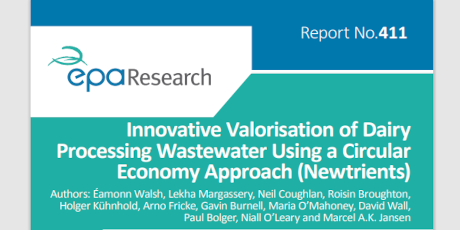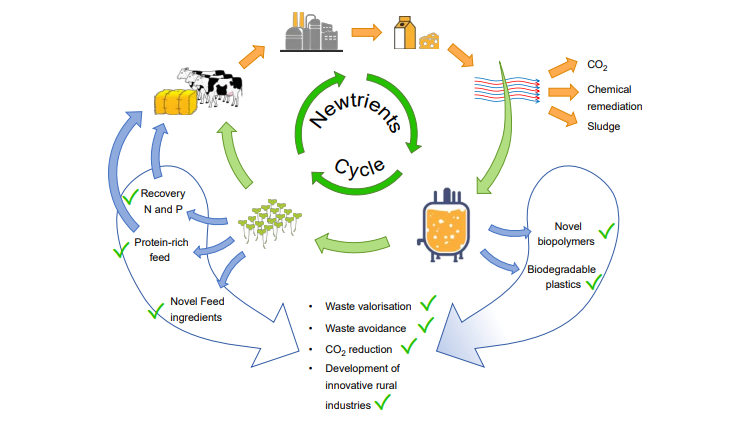Pioneering system for valorising dairy wastewater 26 Jul 2022

Pressing economic and environmental concerns are fuelling an interest in closed-loop approaches to industrial production or the so-called circular economy approach. Circular Economy is an economic model that is nested within concepts of sustainability and describes closed-loop production patterns, long-term value retention, reduction in the use of raw resources and reduction in waste production.
The global importance of circular economy approaches is reflected in a number of the United Nations Sustainable Development Goals (SDGs), but particularly in SDG 12 (responsible consumption and production).
The aim of the EPA-funded Newtrients project based in the ERI, the UCC Dept of Microbiology and UCC School of BEES, was to develop an innovative exemplar of a circular economy approach to the production of novel, value-added products from dairy industry wastewater.
As can be seen in the recently published EPA report Research 411: Innovative Valorisation of Dairy Processing Wastewater Using a Circular Economy Approach (authored by ERI researchers Éamonn Walsh, Lekha Margassery, Neil Coughlan, Roisin Broughton, Holger Kühnhold, Arno Fricke, Gavin Burnell, Maria O’Mahoney, David Wall, Paul Bolger, Niall O’Leary and Marcel A.K. Jansen) this was successfully achieved and Newtrients has shown that compostable bioplastics can be generated from dairy waste, rather than from fossil fuels. In addition, it was demonstrated that duckweed can be grown on dairy processing wastewater, producing protein-rich biomass for use as feed for farm animals and thus creating a closed loop for plant nutrients.

Newtrients has developed and demonstrated innovative wastewater treatment technology, coupled with valorisation of waste, resulting in the production of clean water, novel value-added products, reduced CO2 outputs, nutrient recycling and novel opportunities for rural industrial development.
Watch the project highlights video